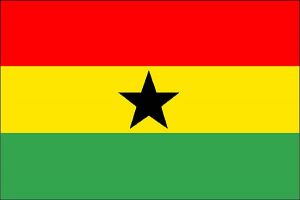Language/Ga/Grammar/Pronouns
Hi Ga learners! 😊
In this lesson, we will explore the wonderful world of pronouns in Ga language. Pronouns are words used to refer to people, animals or things without repeating their names. Instead of saying John, John, John, we can say he, he, he. Pronouns save us from repeating the same words over and over again.
Take a moment to explore these relevant pages as you conclude this lesson: Adjectives, Gender & Plurals.
Personal Pronouns[edit | edit source]
Personal pronouns replace nouns that refer to people, animals or things. They have different forms depending on whether they are the subject or the object of the sentence. Here are the personal pronouns in Ga language:
| Ga | Pronunciation | English |
|---|---|---|
| mii | /miː/ | I/me |
| wo | /wo/ | you |
| yεε | /jεː/ | he/him |
| eyi | /eji/ | she/her |
| yεεnii | /jεːni/ | it |
| mii kεyε | /miː keje/ | we (inclusive) |
| mii kεyεnε | /miː kejεnε/ | we (exclusive) |
| nii kεyε | /niː keje/ | you all |
| nεε kεyεnε | /nεː kejεnε/ | they |
Let's practice with some examples:
- Person 1: Yεεnii awu maŋmεtεε. (/jεːni awu maŋmεtεː/) (It saw me)
- Person 2: Kεenyεε kεhaa yεε mii. (/kεːnjεː kεhaː jεː miː/) (They gave me food)
- Person 1: Mii yεyε sεn. (/miː jεjε sεn/) (I see him)
- Person 2: Wo kεyε sεyε. (/wo kejeɪ sεjeɪ/) (You all hear it)
Possessive Pronouns[edit | edit source]
Possessive pronouns are used to show ownership or possession. They agree with the noun they modify in both gender and number. Here are the possessive pronouns in Ga language:
| Ga | Pronunciation | English |
|---|---|---|
| miiŋ | /miːŋ/ | mine |
| woŋ | /woŋ/ | yours |
| yεεnŋ | /jεːnŋ/ | his/hers |
| yεεnŋnam | /jεːnŋnam/ | its |
| mii kεyεnŋ | /miː kejεnŋ/ | ours |
| nii kεyεnŋ | /niː kejεnŋ/ | yours |
| nεε kεyεnŋ | /nεː kejεnŋ/ | theirs |
Let's see some examples:
- Person 1: Woŋ kε diε. (/woŋ ke diε/) (This is yours)
- Person 2: Yεεnŋna kε myεzi. (/jεːnŋna ke myεzi/) (Its head is big)
- Person 1: Miiŋ lε. (/miːŋ lε/) (This is mine)
- Person 2: Nii kεyεnŋ bεεma. (/niː kejεnŋ bεːma/) (Yours are yellow)
Reflexive Pronouns[edit | edit source]
Reflexive pronouns are used when the subject and the object of the sentence are the same person or thing. In English, we use words like myself, himself or herself. In Ga language we use the affix -kε. Here are the reflexive pronouns in Ga language:
| Ga | Pronunciation | English |
|---|---|---|
| mii-kε | /miː-ke/ | myself |
| wo-kε | /wo-ke/ | yourself |
| yεε-kε | /jεː-ke/ | himself/herself/itself |
| mii kεyε-kε | /miː keje-ke/ | ourselves |
| nii kεyε-kε | /niː keje-ke/ | yourselves |
| nεε kεyεnε-kε | /nεː kejεnε-ke/ | themselves |
Some examples:
- Person 1: Wo-kε yεyε sεn. (/wo-ke jεjε sεn/) (You see yourself)
- Person 2: Mii-kε wεε jεεnii. (/miː-ke wεː jεːni/) (I washed myself)
- Person 1: Mii kεyεnε-kε saidεε lε. (/miː kejεnε-ke saidεː lε/) (We enjoyed ourselves)
- Person 2: Yεε-kε tεε sεε bii. (/jεː-ke tεː sεː biː/) (It hurt itself)
Interrogative Pronouns[edit | edit source]
Interrogative pronouns are used to form questions. They replace nouns or noun phrases that the speaker wants to know about. Let's see the interrogative pronouns in Ga language:
| Ga | Pronunciation | English |
|---|---|---|
| εyε dεεn? | /εjε dεːn?/ | Who? |
| bεεn dεεn? | /bεːn dεːn?/ | What? |
| εtε nε? | /εtε nε?/ | Where? |
| tεmε dεεn? | /tεmε dεːn?/ | When? |
| εhε bεεnε? | /εhε bεːnε?/ | Why? |
| yεwε dεεn? | /jεwε dεːn?/ | How? |
Some examples:
- Person 1: εyε dεεn kε diε? (/εjε dεːn ke diε/) (Who owns this?)
- Person 2: Yεεnŋna bεεn dεεn? (/jεːnŋna bεːn dεːn/) (What is its name?)
- Person 1: εtε nε woni? (/εtε nε woɲi/) (Where do you live?)
- Person 2: Tεmε dεεn wo bii baako? (/tεmε dεːn wo biː baːko/) (When did you arrive yesterday?)
Indefinite Pronouns[edit | edit source]
Indefinite pronouns are used to refer to nonspecific people, animals or things. They don't point to a specific noun. Here are the indefinite pronouns in Ga language:
| Ga | Pronunciation | English |
|---|---|---|
| yεbεε | /jεbεː/ | anyone/anybody |
| benεε | /bεnεː/ | anything |
| nεnεε | /nεnεː/ | anywhere |
| εni | /εni/ | someone/somebody |
| bεni | /bεni/ | something |
| tεni | /tεni/ | sometime |
| maa benεε | /maː bεnεː/ | nothing |
Let's see some examples:
- Person 1: Yεbεε kε di wo yεŋ? (/jεbεː ke di wo jεŋ/) (Did anybody see you there?)
- Person 2: Benεε kε sεε kεεleε diε ? (/bεnεː ke sεː kεːleː diε/) (Did you see anything strange?)
- Person 1: εni bεnεε? (/εni bεnεː/) (Who brought something?)
- Person 2: Tεni diε kε myεzi lε. (/tεni diε ke myεzi lε/) (Yesterday at sometime, the head was there)
That's it for pronouns! Keep practicing! Remember, to improve your Ga Grammar, you can also use the Polyglot Club website. Find native speakers and ask them any questions!
➡ If you have any questions, please ask them in the comments section below.
➡ Feel free to edit this wiki page if you think it can be improved. 😎

